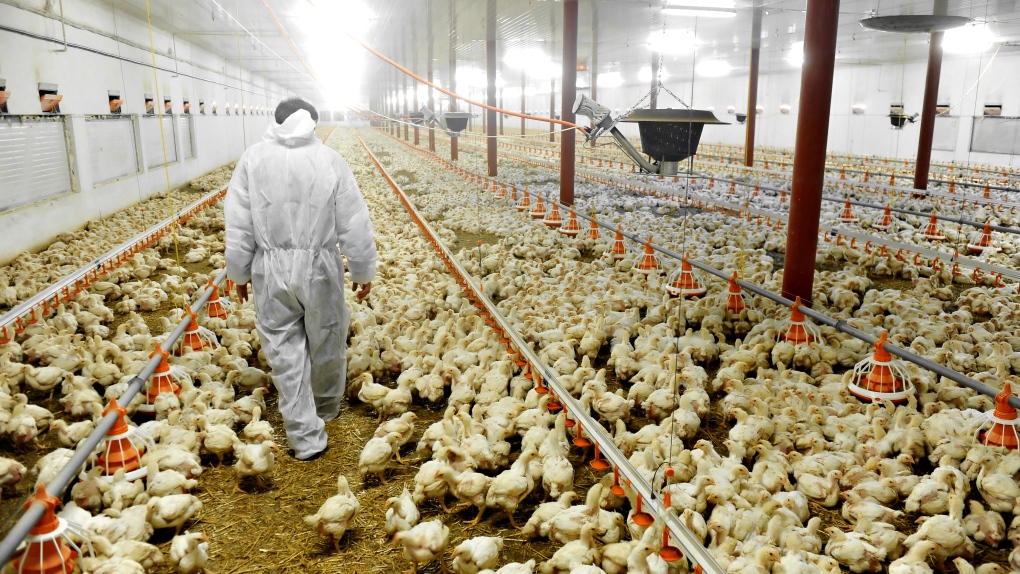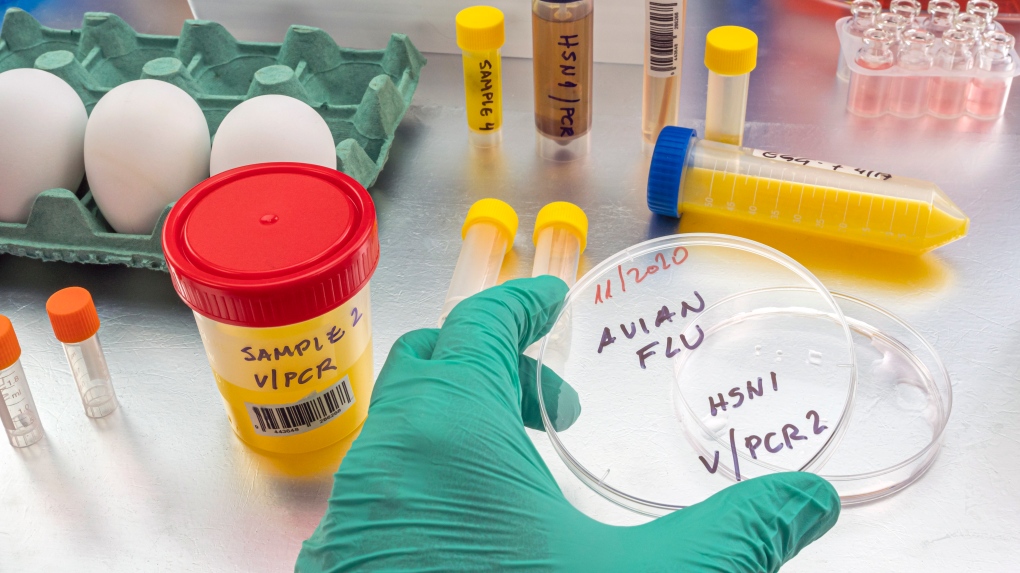Help needed after Wings Rehab Centre changes volunteer protocols amid avian flu concerns
New volunteer protocols are in place at Wings Rehab Centre in Amherstburg as staff care for several birds infected with avian influenza.
In a post online, Wings Rehab indicated that effective this week, volunteers under the age of 18 are no longer permitted to assist at the animal rehabilitation facility, and that all adult volunteers are now required to have a current flu vaccination until further notice.
Officials declined to speak on camera but told CTV News they're dealing with four confirmed cases while keeping a close eye on an eagle that was brought in on Monday that may also be infected.
The change in volunteer protocol has resulted in the loss of roughly three dozen volunteers according to officials who said additional help is now needed to assist in covering shifts.
Health officials at the Windsor-Essex County Health Unit (WECHU) said they continue working to alert the public of the dangers of avian influenza after waterfowl in the area tested positive, confirming four non-human cases across the region.
"I want to emphasize that there is no human-to-human transmission," said WECHU Medical Officer of Health Dr. Mehdi Aloosh. "However, we will monitor the virus as we do with all other new viruses and pathogens… If we notice any increase in the level of risk to our residents in Windsor-Essex, we will communicate in a timely and a appropriate manner."
According to Aloosh, the risk of avian influenza remains low for humans, but transmission between infected animals and humans is possible.
 (Source: roibu/iStock/Getty Images Plus)
(Source: roibu/iStock/Getty Images Plus)
He said recent studies have shown that the influenza vaccine can be beneficial in helping prevent the spread of bird flu among people.
"New studies actually show that the flu vaccine can provide some protection against avian flu," Aloosh explained. "And that has been a great opportunity for us in Windsor-Essex to protect ourselves against flu, seasonal flu, which is on the rise."
Aloosh continued, "We see the signal with wastewater. We see increasing the number of cases. We see the number of outbreaks in long term care homes, which all shows that the level of flu in our area, the activity of the virus in our area is high and will be increasing. So, with a flu shot, I think that we protect ourselves against seasonal flu, which is with us right now and protect partially against avian flu."
Mean time, a team of researchers at the University of Windsor is tracking the instances and spread of avian flu in Windsor-Essex as part of a year long project.
 (Source: digicomphoto/iStock/Getty Images Plus)
(Source: digicomphoto/iStock/Getty Images Plus)
Using environmental samples taken from areas in Essex County where both migratory and resident birds congregate, they monitor the levels and types of influenza infections to help prepare for potential future spread into commercial livestock and humans.
"Right now, the virus does not transmit efficiently among people and that's a good thing because if it did, then that would be the start of a pandemic," said project lead Dr. Ken Ng.
Ng said so far, there have been relatively few instances of humans contracting avian influenza, but that is no reason for complacency.
"The problem is that if there are more infections in people, some of those infections could lead to variants of the virus that could start to transmit more efficiently, and that's the thing that everyone wants to avoid. So, we want to minimize that kind of exposure."
CTVNews.ca Top Stories

BREAKING Ontario pitches energy partnership amid Trump's threats of tariffs, Canada acquisition
In the face of incoming U.S. president Donald Trump’s threat to acquire Canada, Ontario Premier Doug Ford is touting the strength of the province's energy supply to generate revenue and jobs on both sides of the border.
LIVE UPDATES Tracking the L.A. wildfires: 2 dead as major fires at 0% containment, locals describe 'terrifying' escape
A series of wildfires are searing through the Los Angeles area, forcing many to evacuate their homes. Follow along here for the latest updates. Numerous buildings were destroyed and nearly 3,000 acres burned in the Pacific Palisades. Weather conditions are expected to deteriorate further through today.
Canada ranked among 'top 5 losers' in new passport ranking
A new global ranking may raise doubts about Canada's reputation of being open to other countries.
Minister LeBlanc not running for Liberal leadership, as caucus meets for first time since Trudeau resignation
Longtime cabinet minister Dominic LeBlanc will not be running to replace Prime Minister Justin Trudeau as head of the Liberals. He announced his decision in a statement posted to social media on Wednesday.
Is Donald Trump kidding? Americans in Canada react to tariff, annexation threats
While Donald Trump's comments on tariffs and Canada becoming 'the 51st state' have drawn anger and fear among Canadians, reaction from Americans who live, study or work in Canada has been mixed, and is largely influenced by how they voted in the presidential election.
Hollywood stars forced to flee amid devastating Los Angeles wildfires
Large parts of Los Angeles County are under evacuation orders Wednesday as massive wildfires spread through the megacity's hilltop suburbs. Here is what some of the stars are seeing from their backyards.
B.C. doctors comparing avian flu that infected teen with that of Louisiana patient
The BC Centre for Disease Control says it is comparing the genetic features of a local teenager's avian flu case with that of a Louisiana patient who died earlier this week.
4 generations on 1 lot: One family's creative response to B.C.'s housing crisis
A single lot in Delta, B.C., that used to be home to a single rancher built in the 80s is the site of four separate homes, housing four generations of the same family.
Body of at least 1 Israeli hostage is recovered in Gaza, military says
Israeli forces have recovered the body of a hostage held in Gaza, the military said Wednesday, adding that it was identifying additional remains that could belong to another captive held in the war-torn enclave.
































